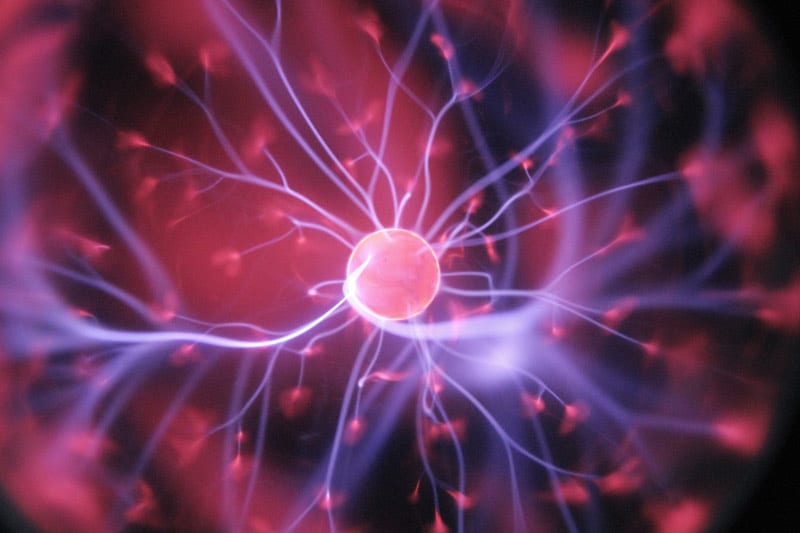We live in a world where we are constantly on the go.
Almost every minute of every day is jam packed full of loud noises, bright lights, and a near constant state of hustle and bustle. And when you combine that with a whole lot of life-related stress, well things don’t end up so good.
To put it simply, your brain never gets the chance to recover.
Over time this state of overstress and under-recovery can accumulate in a very negative way, eventually resulting in potential cognitive disruption, and a steep drop in your mental health – and depression ensues.
It’s not pretty.
But we do have a solution.
Well, in fact, we have a few solutions.
In this article we outline 6 great ways you can help the health of your brain, fight depression, and increase your happiness – and all in a completely natural and scientific manner.
1 – Light therapy
Did you know that exposure to natural light has been shown to help regulate hormone function, improve mood, and even stave off depression?
It’s pretty cool to think about really.
However, as you very well know, exposing yourself to natural light is often a whole lot easier said than done. Obviously, the changing of seasons can make this quite difficult, and when we factor in that most people work during the day – well, it can become damn near impossible!
But there is a good solution,
Light therapy.
Light therapy is a pretty simple in premise. All you need to do is spend a bit of time near a device (I have mine set up next to my work desk) known as a ‘light therapy box’ that emits a light that essentially replicates the natural light from the sun.
In this manner, light therapy improves mood, enhances mental health, fights off depression, and ultimately keeps you happy.
Ben Greenfield does it once per day to enhance his testosterone levels, skin complexion, speed up recovery from his workouts, and improve cognition and sleep.
2 – Cognitive behavioral therapy (CBT)
Cognitive behavioral therapy (also known as CBT for short) is a powerful mental health strategy that works by teaching you how to change your thoughts and behaviors.
Depression often manifests through a subconscious change in mindset that enforces a very negative outlook on daily situations. As such, the aim of CBT is to teach you how to replace these negative thoughts and feeling with something more positive.
Consider this… CBT revolves around two key things – learning and doing.
When you undertake CBT, you will learn coping skills and techniques that are directly related to you at an individual level. You will then use this learned knowledge to change your mindset and daily behaviors.
This powerful system has been shown to cause huge improvements in mental health, while also staving off both depression and anxiety.
3 – Transcranial Magnetic Stimulation (TMS)
Transcranial magnetic stimulation (TMS for short) is a somewhat revolutionary treatment that uses small scale magnetic fields to stimulate the nerve cells in your brain.
I know what you are thinking, that it sounds like something out of a sci fi movie – but trust me, this is legit.
During a TMS session, a unique electromagnetic pad is placed on your skull, quite close to your forehead. This electromagnet then sends a mild magnetic pulse into your skull, stimulating the nerve cells within the areas of your brain that are involved with emotion control and mood.
As a result, TMS essentially upregulates the activity of this section of the brain, improving mood and wellbeing. This amazing therapy is so potent that it is commonly being used to help people with major depressive disorders.
4 – SAMe
SAMe is short for S-adenosyl-L-methionine – a powerful compound found naturally within your body, that essentially helps you produce key brain hormones, while also maintaining the membrane health of your brain cells.
While SAMe was discovered several years ago, it only began receiving attention within the health industry when it was discovered that people who are deficient in it were at a much higher risk of developing mental health disorders – with an emphasis on depression and anxiety.
Since then it has become of serious interest to health practitioners across the globe.
Supplementing a synthetic version of SAMe (remember, it is normally made within the human body) has been shown to cause significant improvements in these same mental health disorders.
This amazing supplement can be taken orally or intravenously, and because of its powerful effects, is becoming frequently applied to individuals suffering from treatment resistant depression.
5 – Interpersonal therapy (IPT)
Arguably one of the most important human needs is the need for social interaction.
We need to have regular communications with like-minded individuals that give us the opportunity to share our thoughts and feelings in a positive way.
Which is exactly where interpersonal therapy works its magic.
Interpersonal therapy is an interesting form of talk therapy that teaches you how to improve the quality of your relationships, and your ability to function socially.
In this manner, it seriously enhances your ability to express your emotions positively while also teaching you to deal with any lasting emotional baggage that may be subconsciously affecting your current relationships.
Interpersonal therapy is becoming an increasingly common method of treating mood disorders, where some research has even indicated it is comparable to prescription anti-depressants.
6 – Mindfulness-based cognitive therapy (MBCT)
There is a growing body of research demonstrating that the regular participation in mindfulness and meditation can cause lasting improvement in mood, wellbeing, and cognitive function. These sorts of exercises teach us how to better handle our emotions, while also physically de-stressing the body.
image source: https://unsplash.com/photos/08swtCO0Syg
In short, they reverse the effects that daily stress can have on your mental health – and mindfulness-based cognitive therapy capitalizes on this interaction in a big way.
Mindfulness-based cognitive therapy (or MBCT for short) is a mode of cognitive therapy that is built around the integration of mindfulness practices such as meditation and specific breathing exercises.
By using these tools, it teaches you how to take a step back from everyday situations and look at them in a more objective manner. In doing so, it allows you to gain a better grasp on your emotions and actively stave off depressive feelings in the process.
This type of therapy is arguably one of the most accessible depression treatments we have available.
Take Home Message
In today’s world, depression has reached near epidemic proportions – and unfortunately, potentially dangerous antidepressants are often seen as the only solution. But they don’t have to be.
There is vast body of research clearly demonstrating that there are many natural treatment methods that can improve your mood and wellbeing, and stave of depression without the nasty side effects that come with medication.
Which in my opinion, is a much better option.
If you or someone you know experiences mental health issues, it is important to seek help from a qualified professional. Our Resource Specialist can help you find expert mental health resources to recover in your community. Contact us now for more information on this free service to our users.
Author Bio: Sasha lives in Europe – Slovenia. When not writing about mental health and wellness, he likes to spend his time practicing yoga, archery, and cooking.
Photo by Hal Gatewood on Unsplash
The opinions and views expressed in this guest blog do not necessarily reflect those of www.rtor.org or its sponsor, Laurel House, Inc. The author and www.rtor.org have no affiliations with any products or services mentioned in this article or linked to herein.
Recommended for You
- Why Eating Disorders in Men Are Often Missed - July 3, 2025
- No More Silence: The Opioid Epidemic’s Alarming Impact on Women - June 30, 2025
- The Hidden Impact of Repressed Memories on Mental Health and How to Heal - June 26, 2025






